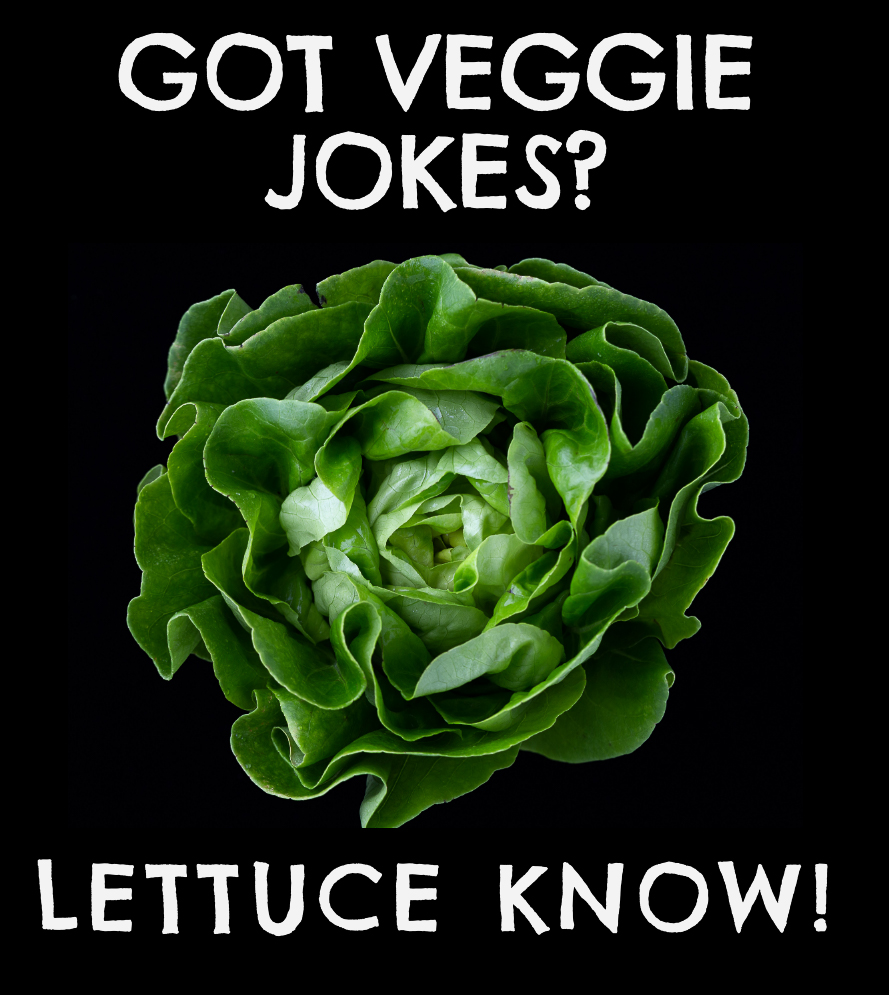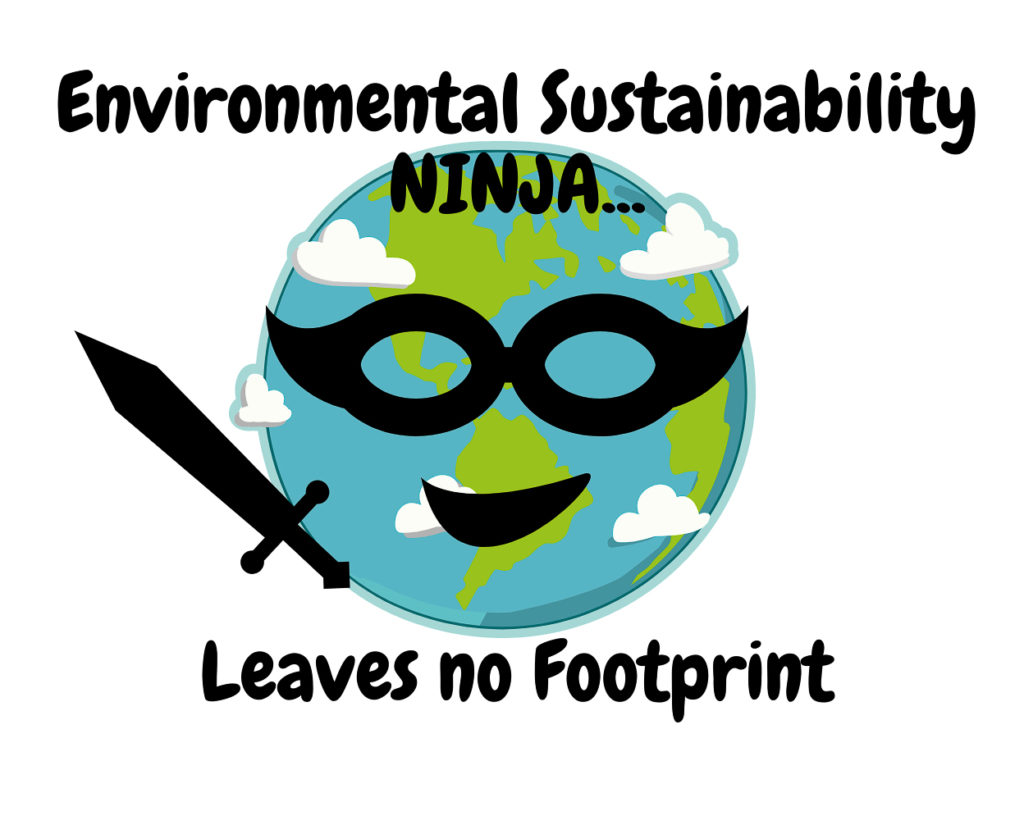
One of those words that really has endless meaning and possibility. Here at Land’s Sake, it is at the core of everything we do. From how we manage the fields and grow the vegetables, to composting, and teaching about everything in between. The environment drives all of these decisions, and teaching it to our children is critical. Our future is the most important crop we grow. Talking about good environmental behavior is one thing, having the opportunity to get out in your own yards or on the farm and learn how to take care of the land in your own town is quite another.
SUSTAINABILITY
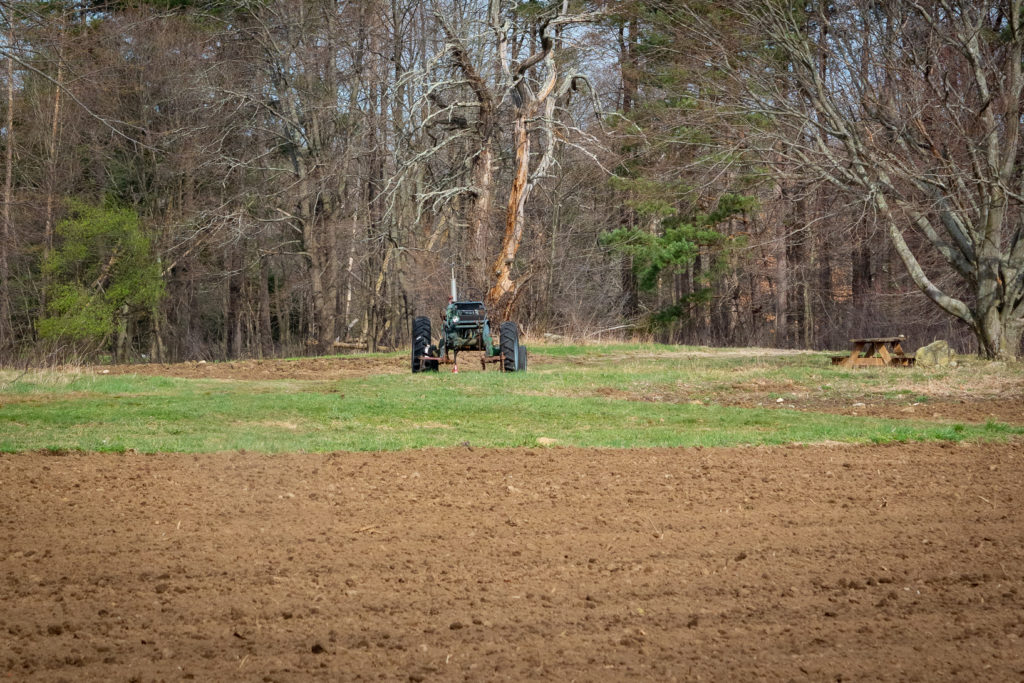
“Land’s Sake sees itself as a part of a movement to create a sustainable local food system; an effort to revive farming in New England and to convince consumers that eating close to home is healthier for the land and themselves.” – Brian Donahue
We’ve Always Been Green at Land’s Sake
Farmer JT shares how Land’s Sake Keeps it green.

“We all love to throw around the buzzword “sustainable”, but how often do we stop and think about what it truly means? The literal definition of sustainability is “the ability to be maintained at a certain rate or level”. Systems achieve this kind of sustainability by respecting the resources they rely on, protecting and nourishing them, not degrading and depleting them. At Land’s Sake, we’ve never had to “go green” or make a transition to sustainability, because we’ve always had this ideology of respect for natural resources at our core. For decades we’ve been practicing sustainable farming practices: we plant cover crops like winter rye and buckwheat in our fields when they’re not in use to protect the soil and act as a natural fertilizer.
We also leave swaths of native trees, shrubs and grasses growing around our fields to provide habitat for the birds & beneficial insects that keep our pest populations down. Maintaining healthy soil and biodiversity on the farm means we don’t have to rely on tons of chemical fertilizers and pesticides. We do these things not because they’re trendy, but because we know they sustain our land, and our land sustains us. That’s why Earth Day is so important to us at Land’s Sake, everything we do here is about connecting people to nature. We know that when we respect nature, she always returns the favor!
The heart of Land’s Sake’s sustainable approach is to rotate crops and incorporate legumes. We have experienced with many techniques over the years, added and subtracted acreage, gained and lost markets. But within this evolution, the constants have been multiple plantings, crop rotation, and incorporation of cover crops and green manures wherever possible.
Cover Crops– grown for part of the summer or over the winter not to be harvested for consumption
Green Manures- grown through an entire season so that the land is out of production not to be harvested for consumption
Cover crop serves to take up soluble nutrients and bind them into organic matter so that they are not leached away, but held in the topsoil, slowly releasing nutrients for future crops and improving the soil’s tilth and water holding capacity. This process is vital for the light, sandy soils of Land’s Sake and Green Power fields, and have been improving over the years!
Over time, balancing crop diversity, weeding, organic standards, and all it takes to make a season come together, we have found what works best for our soils and climate, and still learning to this day.
HISTORY
Environmental Stewardship
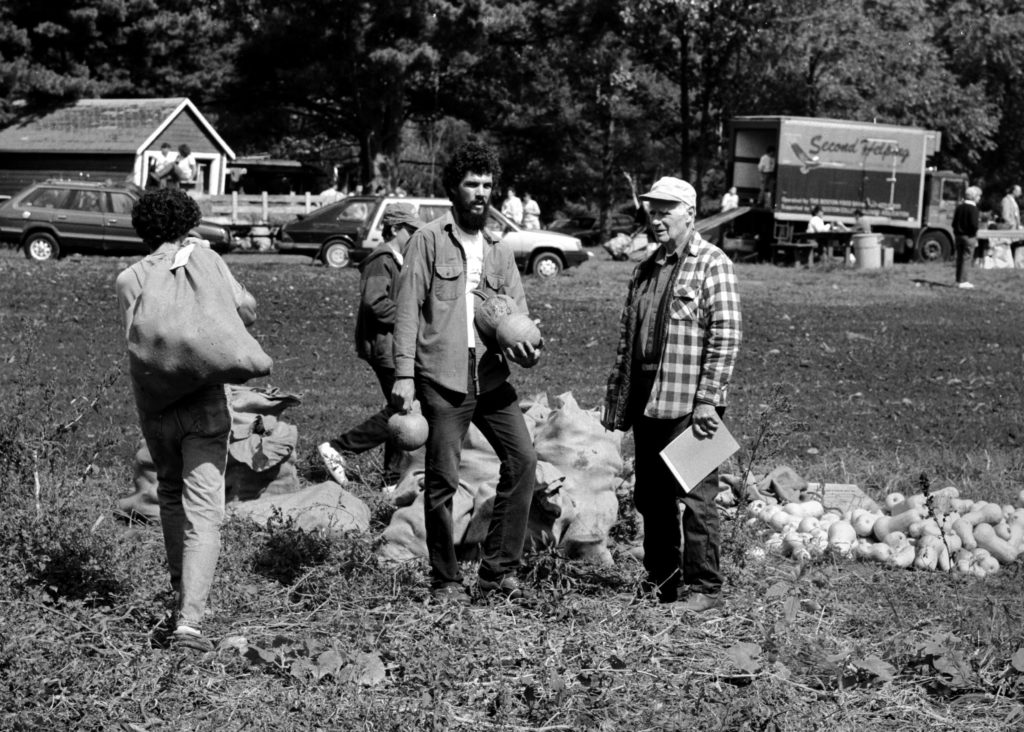
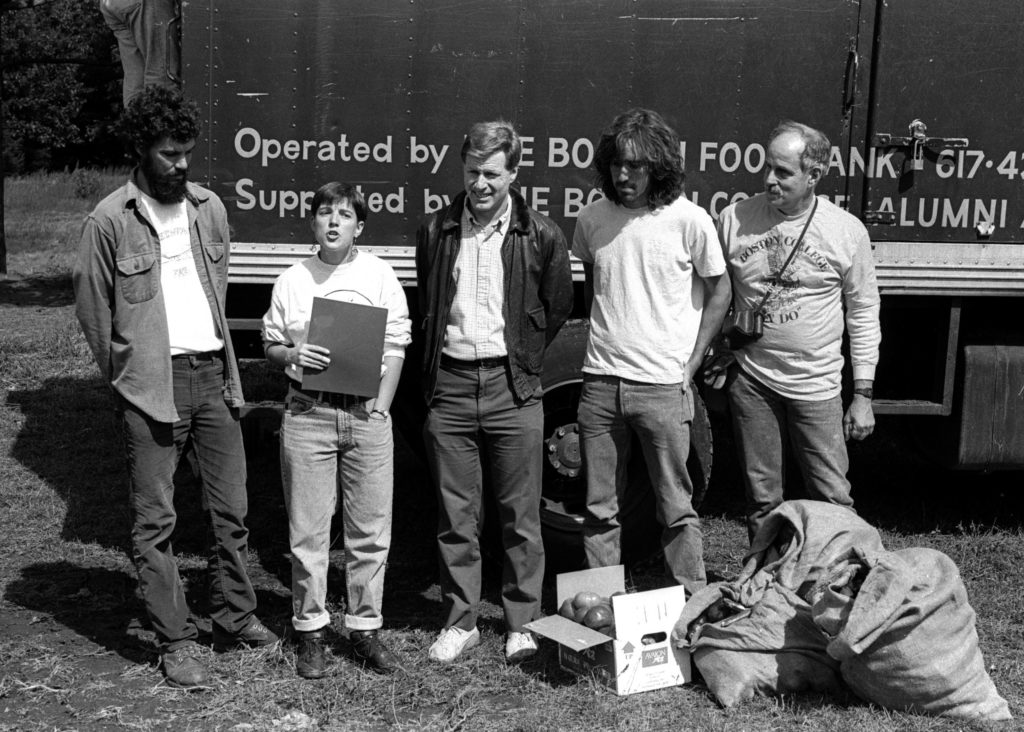
Environmental Stewardship: the responsible use and protection of the natural environment through conservation and sustainable practices. These are the definitions which molded the actions of many people, especially farmers, to change the way things were going creating Earth Day movement, and set us on a path towards the consciousness we are seeing more of today.
“Knowledge builds up in the mind, in much the same way that organic matter builds up in the soil, as the residues of one year after the other are turned under. Thus every year we cultivate the ground not only in the present, but within the memory of what happened with this crop or that field in past years… In the end, this deepening familiarity with a place makes farming sustainable.”
Brian Donahue
Brian Donahue, a wearer of many hats, and a Land’s Sake founder, has been directing this initiative for many years through education and especially here in Weston. It is hard to talk about Land’s Sake and not have Brian’s name come up, and rightfully so. Brian, along with a determined group of resident enthusiasts, (Bill McElwain, Doug Henderson, & Martha Gogel to name a few) championed against numerous hurdles to preserve the conservation land and farm we all enjoy today. Brian also wrote a book about this journey, Reclaiming the Commons (1999) telling the fun filled story of community farms and forests in a New England Town, which still rings true today!
ENVIRONMENT THEMED EDUCATION
Get Outside for a Scavenger Hunt!
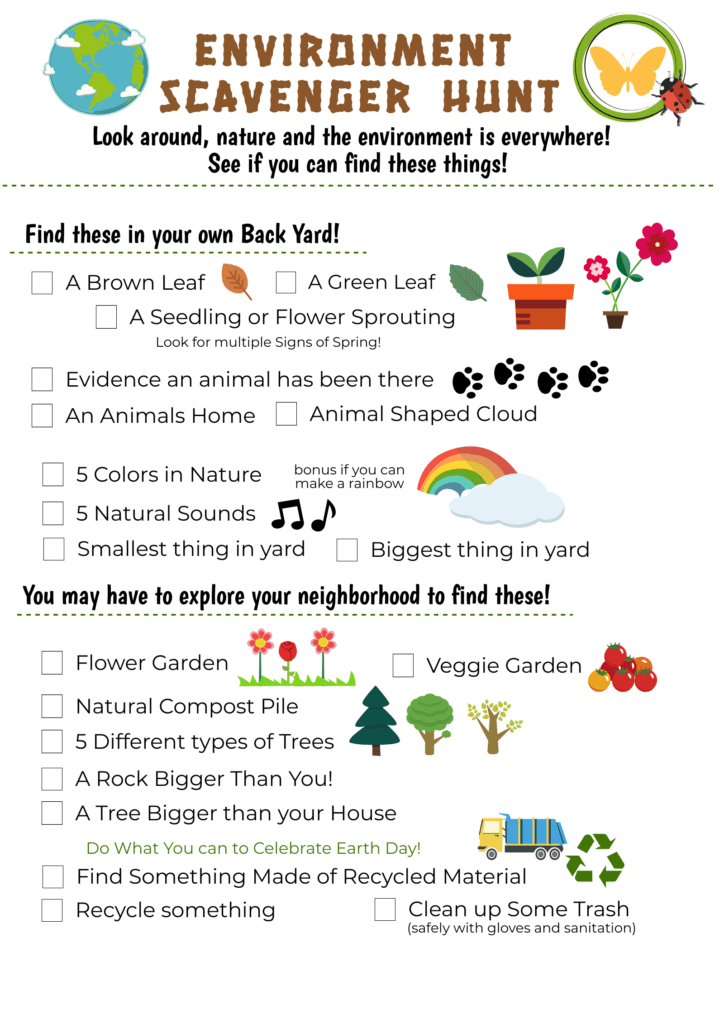
It’s a perfect time of year for a scavenger hunt! Download our environment scavenger hunt PDF and see if you can find all the items on the scavenger hunt in your own yard, or go for a walk with your family and see if you can find these items in your neighborhood. Want more Outdoor scavenger ideas? Visit this site for some great ideas.
Make a Difference with Composting
WHAT IS COMPOSTING?
Compost is a super easy and impactful way to help the environment in your everyday life! The simplest way to think of it is that it’s taking your leftover food and yard waste and turning them into healthy soil.
HOW MUCH FOOD DO WE PUT IN THE LANDFILL?
At lunch and dinner today collect all of the food waste at the end of the meal and see how much it weighs. Do you think you can do better? Tomorrow see if can help reduce the waste. How? Eat everything on your plate? Take smaller first portions and go back for seconds if you are still hunger? Now weigh how much food waster there is. Was there less this time? Make a graph and see if you can keep your waste from the table down.
WHAT CAN I DO DO MAKE A DIFFERENCE?
According to the EPA Americans throw away nearly half of all their food, equaling around 1500,000 TONS of wasted food EVERY DAY. When food waste goes to the landfill, it breaks down without air, creating methane a greenhouse gas.emissions. By composting, you save space in a landfill, recycle natural nutrients back to the earth, AND you get *free* AMAZING soil to grow plants in your own garden!
Activities
PEPPA PIG LEARNS ABOUT COMPOSTING
Peppa Pig fans will enjoy watching this great episode where Peppa learns learns about composting. Check it out!
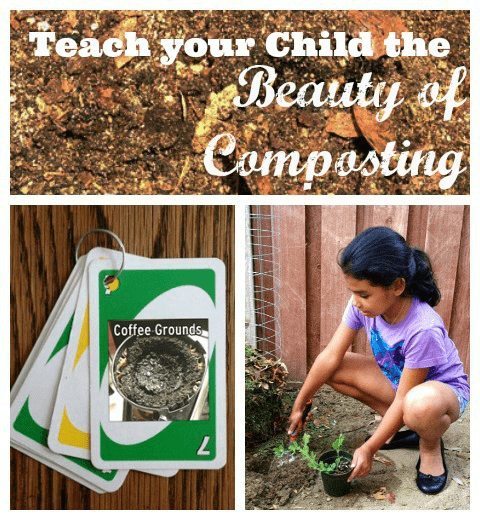
COMPOSTING PROJECTS
Getting Dirty: Five Fun Composting Projects for KidsIf you’re looking for a fun activity to get your kids outdoors, try getting dirty making fresh organic compost. This article will show you five fun composting projects you can do with your kids.
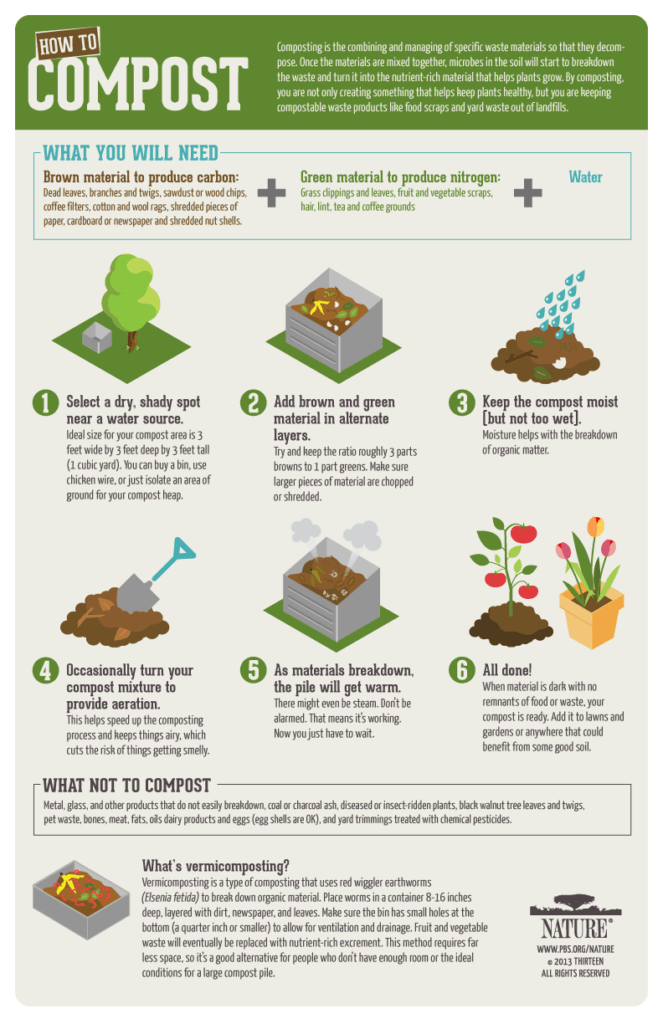
THE DO’S AND DONT’S OF COMPOSTING FROM PBS.ORG
Check out this infographic from pbs.org which reviews the do’s and dont’s of composting, where and how to compost, what to compost and what not to compost.
ENVIRONMENTAL VEGGIE PUNS
